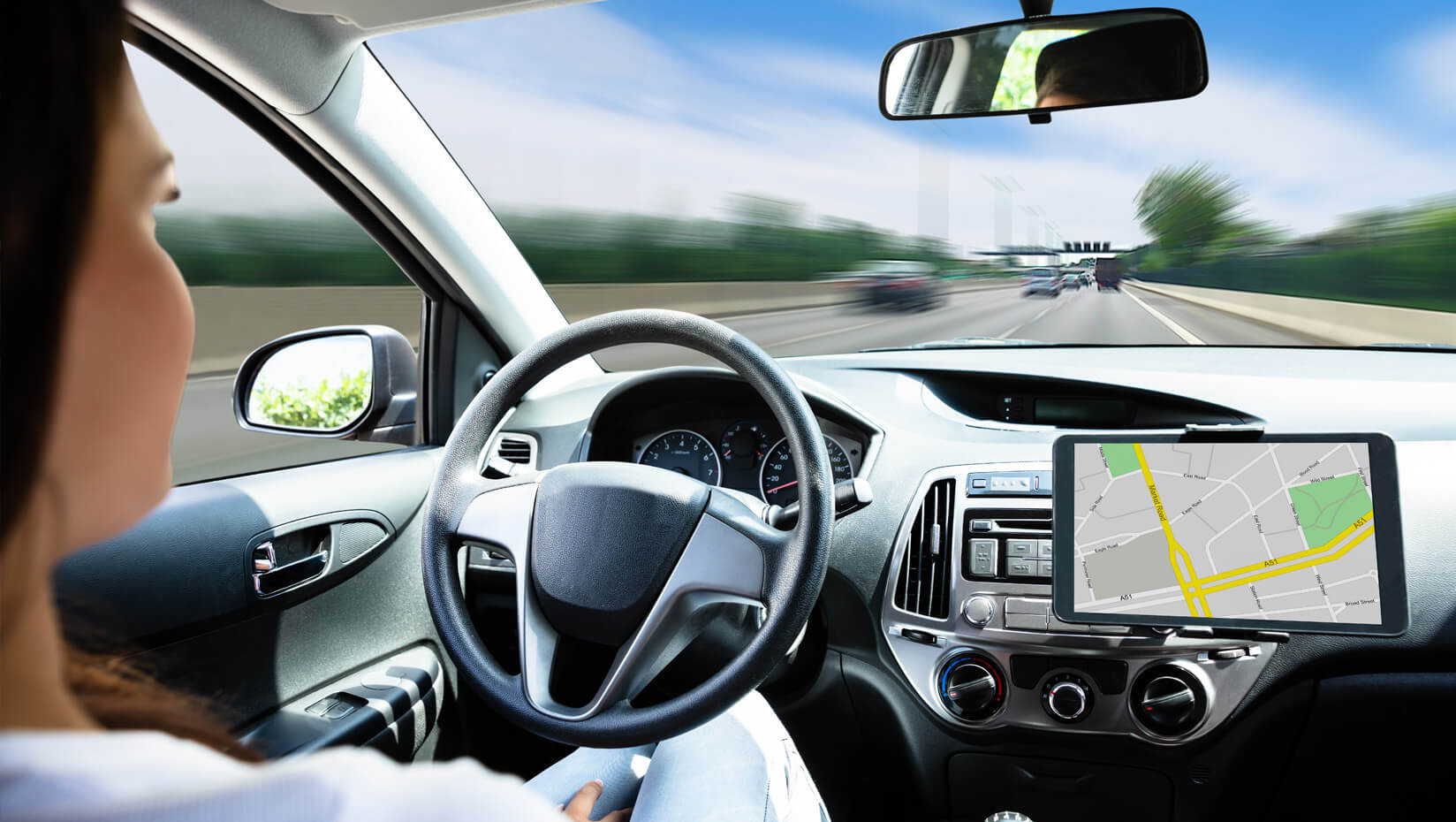
UMaine research project focuses on improving trust in autonomous vehicles using human-vehicle collaboration
A $500,000 National Science Foundation research grant to the University of Maine to study self-driving vehicles aims to make the transportation of the future more accessible, usable and trustworthy.
The project, co-led by Nicholas Giudice and Richard Corey, who run and direct the VEMI Lab at the University of Maine, is designed to improve user trust of fully autonomous vehicles through a new study they call human-vehicle collaboration (HVC). The goal is to explore new ways of sharing how decisions are made and information is communicated between the human passenger and the artificial intelligence “driver,” thereby addressing the key human factors of perceived loss of control over driving activities and fear of not “knowing” what the vehicle is doing during autonomous operation.
Although the autonomous vehicle market is predicted to reach $500 billion in the next five years, the majority of R&D has focused on the technical challenges of making these vehicles work well for our roads, Giudice says. Far less is known about the challenges of making these vehicles work well for the human user. Indeed, an annual AAA survey released in March found that 71 percent of people are afraid to ride in fully self-driving vehicles.
HVC represents the science of identifying the best ways for people to interact with and partner with the vehicles of the future.
“For the average end-user, autonomous vehicles offer new travel opportunities that are safer, more efficient and convenient,” says Corey. They also have particular promise for people who cannot drive, such as older adults and those who are blind or have visual impairments. For these groups, autonomous vehicles present incredible, life-changing opportunities in terms of improving quality of life and independence.
“Current vehicle designs have often overlooked passengers and their diverse needs, especially the very people who will benefit most from their release,” says Giudice. This project seeks to extend the potential of autonomous vehicles to all users.
Benefits from the personalized profiles and increased information-sharing processes developed by the team as part of the human-vehicle collaboration framework are expected to manifest during everyday driving events. From an otherwise inexplicable reroute on your way to work, to increased driving urgency during a medical emergency in the vehicle, the research project will introduce new ways for people to interact with autonomous vehicles, while also enabling adaptive features to meet the needs of each user.
“HVC will enable increased understanding of what the vehicle is doing — and why,” says Corey, which is predicted to significantly improve user trust, consumer acceptance, and overall usability of the fastest growing transportation of the future.
According to Giudice, human-vehicle collaboration is an essential step in the “trust race” to ensure that autonomous vehicles are still able to meet our needs, even when we’re not at the wheel ourselves.
Contact: Margaret Nagle, 207.581.3745
